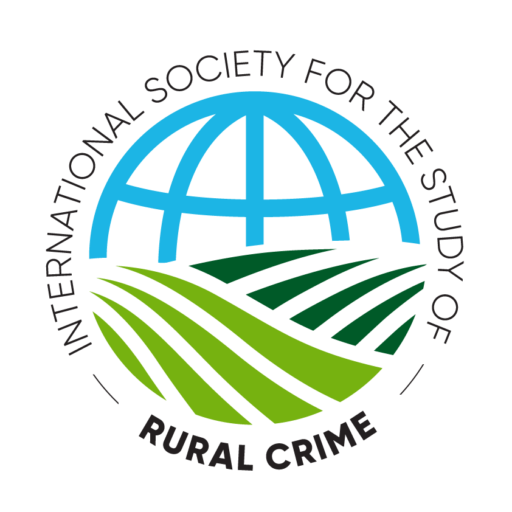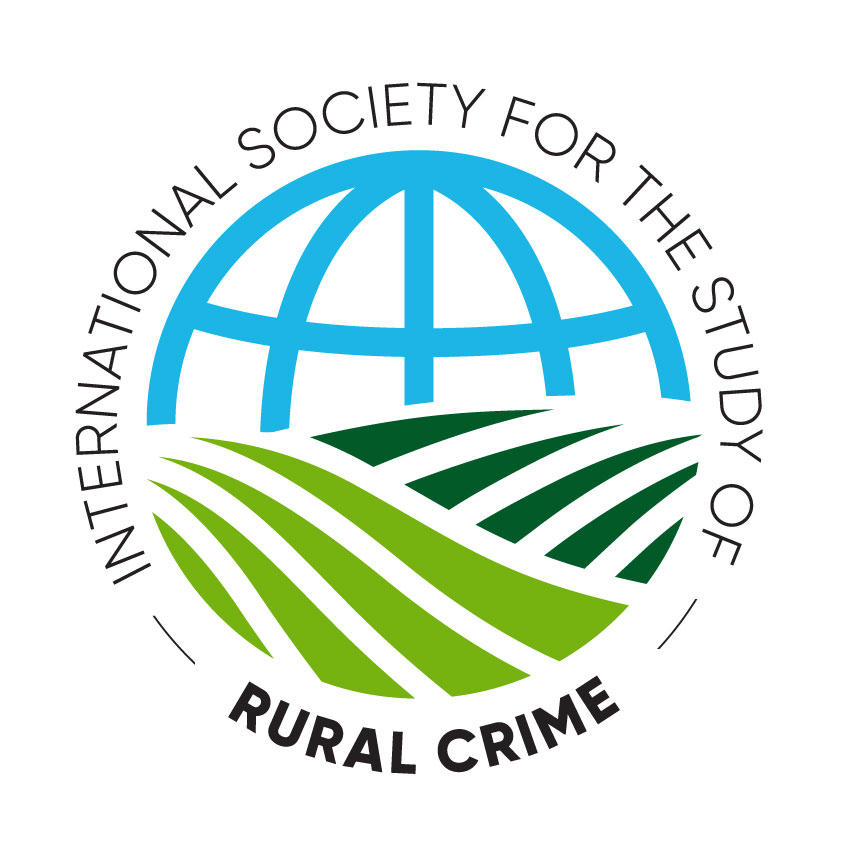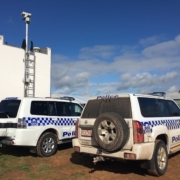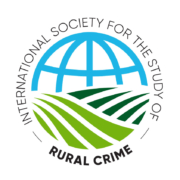New Research! Rural Crimes Committed in 1940’s Ireland
Written by Dr Clay Darcy, Technological University Dublin, Ireland.
A recent research article by Clay Darcy, PhD, published in the International Journal of Rural Criminology (Vol. 8, Issue 1) examines a volume of recorded crimes compiled by Irish Police (Gardaí) during the early 1940’s in three small rural villages on the East coast of Ireland. The volume is being analysed as part of an ongoing sociological research project into historical rural crime in Ireland.

Front Cover of the Volume of Crimes
This article focuses on crimes committed between 1941 and 1943. Darcy uncovers records of various types of crime within the volume, including; indecent assaults, concealment of births, attempted suicide, sacrilege and larceny, among others.
The article provides a historical backdrop to the research, describing what rural Ireland was like in the 1940’s. It was a period known as the ‘State of Emergency’ in Ireland. World War II raged in Europe and Ireland had adopted a stance of neutrality. At this time Ireland was still a relatively new independent State with no means of defence and Irish society was heavily influenced by the Roman Catholic Church. It was a time when crime and sin were deeply intertwined.
The article also describes the formation of the Irish Police Force: An Garda Síochána, and highlights how this police force was comprised of physically large young men. The majority from agricultural backgrounds, who had low levels of educational attainment and were predominantly Catholic. Darcy argues that at this time, the Gardaí were not only agents of the state, enforcing its laws, but they were also moral watchdogs, enforcing a version of social order that was in keeping with the religious teachings of the Roman Catholic Church.
The article presents both quantitative and qualitative data. The quantitative findings include tables detailing the type and number of crimes committed in these small villages between 1941 and 1943 and details relating to ‘culprits’ and ‘injured persons’. Interestingly, 31 out of the 83 culprits (37%) for the period under examination were children under the age of 18 years.
The qualitative aspect of the article examines four categories of crimes: concealment of birth; larceny; attempted suicide; and, indecent assault. The article also examines and discusses the authors of the volume: the Gardaí. Focusing in particular on their investigating and interrogation practices.
The contribution of the article lies in how it provides a vignette into rural crime and of the lives of those living in these small rural villages in Ireland during the 1940s. Darcy argues that crime and sin were deeply interwoven at this time and that morality featured heavily in the policing habitus of the Gardaí.
Much of the crime featured in the volume related to poverty and the austerity of social life during a national state of emergency. This article might appeal to those interested in historical rural crime, morality and crime, Irish policing history.

 Rural police services experience adversities that differ from urban areas, including the geographical distances that are needed to be covered, lack of government funding, minimal transport infrastructure, high rates of unemployment and poverty of residents, and rising rates of violent crime and property offences compared to non-urban areas.
Rural police services experience adversities that differ from urban areas, including the geographical distances that are needed to be covered, lack of government funding, minimal transport infrastructure, high rates of unemployment and poverty of residents, and rising rates of violent crime and property offences compared to non-urban areas.


 The event will be hosted and moderated
The event will be hosted and moderated Inspector Farica Prince
Inspector Farica Prince Chief Rob Davis
Chief Rob Davis Chief Jim Davis
Chief Jim Davis Mark Prosser
Mark Prosser Rural crime and criminal justice practices and responses face different challenges from those experienced in urban contexts.
Rural crime and criminal justice practices and responses face different challenges from those experienced in urban contexts. The event will be hosted and moderated by
The event will be hosted and moderated by  Detective Inspector Cameron Whiteside
Detective Inspector Cameron Whiteside Inspector Alan Dron
Inspector Alan Dron Tori Heaney
Tori Heaney Christian Mouhanna
Christian Mouhanna
